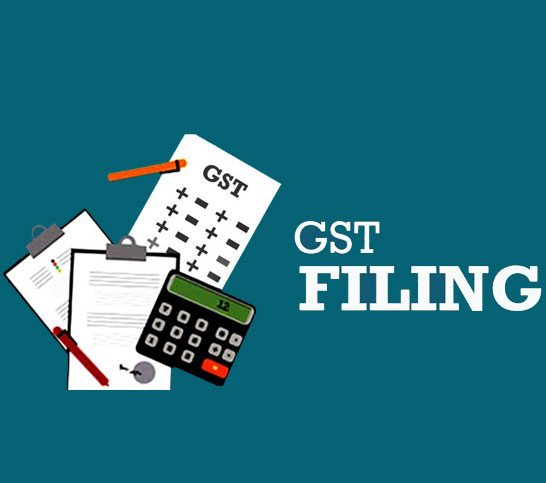GST RETURN FILING

WHAT IS GST FILING ?
GST return filing is a mandatory process for all registered businesses under the GST regime. It involves the submission of various forms depending on the transactions and the type of registration, detailing sales, purchases, tax collected, and tax paid. These returns are filed electronically through the GST portal. Businesses must file returns monthly, quarterly, or annually based on their turnover and the scheme they are enrolled under. Timely filing of GST returns is crucial as it facilitates the smooth flow of input tax credits across the supply chain and ensures compliance with tax laws, avoiding penalties and legal issues.
GST RETURN FILING
FOE WHOME GST RETURN FILING MANDATORY ?
GST return filing is mandatory for all businesses and entities that are registered under the Goods and Services Tax (GST) regime in India. Specifically, the requirement to file GST returns applies to:
Regular Businesses: Any business with an annual turnover exceeding the threshold limit (currently ₹40 lakh for goods and ₹20 lakh for services, with variations for special category states) must register for GST and file returns.
Voluntary Registrations: Businesses that voluntarily register for GST, even if their turnover is below the threshold, are also required to file GST returns.
Composition Scheme Taxpayers: Smaller businesses that opt for the GST Composition Scheme (which allows them to pay GST at a fixed rate of turnover) must file quarterly returns instead of the standard monthly filings.
Non-Resident Taxable Persons: Those who reside outside India but supply goods or services to residents in India must register for GST and file returns.
Input Service Distributors: Entities that receive invoices for services used by their branches and have the same PAN must distribute the credit and file returns.
E-commerce Operators: Entities operating e-commerce platforms that collect tax at source must file specific returns under GST.
Agents and Brokers: Individuals or entities acting as agents or brokers under GST must file returns detailing the transactions carried out on behalf of principals.
The process ensures transparency in the indirect tax regime and enables the government to keep track of tax liabilities and credits within the economy.

WHAT ARE THE KIND OF GST RETURN ?
Under the GST regime in India, various kinds of returns need to be filed depending on the type of taxpayer and transactions. Here’s an overview of the primary GST returns and their purposes:
GSTR-1: This return is used by registered taxable suppliers to report their outward supplies of goods and services. This includes sales to other registered businesses (B2B) and to consumers (B2C).
GSTR-2A: This is a read-only document generated for recipients based on the GSTR-1 filed by their suppliers. It allows recipients to see incoming supplies on which the input tax credit can be claimed.
GSTR-2B: Similar to GSTR-2A, this is a static version that provides a snapshot of input tax credit information as per the suppliers’ GSTR-1 and GSTR-5 for a specific tax period.
GSTR-3B: A monthly summary return that must be filed by all regular taxpayers. It summarizes the details of outward supplies, inward supplies liable to reverse charge, and input tax credit availed.
GSTR-4: Filed by taxpayers who have opted for the GST Composition Scheme. It is a quarterly return detailing the total value of consolidated supply made during the period, along with the tax paid.
GSTR-5: This return is for non-resident foreign taxpayers who are registered under GST and make taxable supplies in India. It captures details about outward supplies, imports, input tax credits, and taxes paid.
GSTR-5A: For non-resident Online Information and Database Access or Retrieval (OIDAR) services providers to declare their supplies and tax paid.
GSTR-6: Filed by Input Service Distributors (ISDs). It includes details of input credit distributed and the source of the credit.
GSTR-7: Used for reporting tax deducted at source (TDS) details by those who are required to deduct TDS under GST.
GSTR-8: E-commerce operators who collect tax at source under GST must file this return, providing details of supplies effected and the amount of tax collected at source.
GSTR-9: The annual return that has to be filed by regular taxpayers. It includes details from the monthly/quarterly returns filed throughout the year.
GSTR-9A: Filed by those registered under the composition scheme. It is a simplified annual return.
GSTR-9C: A reconciliation statement or audit form for those taxpayers whose annual turnover exceeds a specified limit (currently ₹2 crore). It is prepared by a certified chartered accountant or a cost accountant to reconcile the values declared in the annual return (GSTR-9) with the audited annual financial statement.
GSTR-10: A final return to be filed by a person whose GST registration has been surrendered or cancelled.
GSTR-11: Filed by persons who have been issued a Unique Identity Number (UIN) and who make procurements in India. This return allows them to claim a refund on the goods and services purchased by them in India.
These returns help maintain transparency and compliance in the GST system, ensuring that every transaction has a digital footprint for both the authorities and the businesses involved.
DETAILS REQUIREDFOR GST RETURN FILING
When filing GST returns, you’ll need to provide detailed information to ensure compliance and accuracy. Essential details include your GSTIN (GST Identification Number), the legal name of the registered person, and the period of the return. You must report your outward supplies, which encompass taxable sales, exports, and supplies to SEZs, along with inward supplies that are subject to reverse charge and imports. Input Tax Credit (ITC) details are crucial, covering credit availed and reversed. Additionally, total tax liability, taxes paid (including tax break-up into CGST, SGST, IGST, and cess), and any interest or penalties applicable should be accurately documented.
Sale Of Goods
Sales of goods involve exchanging products for payment in transactions.
Purchase Of Goods
Purchasing goods involves acquiring products in exchange for payment.
GST Recived On Sales
GST collected from sales reflects tax revenue earned on transactions.
Given GST On Purchase
GST paid on purchases represents tax expenditure for acquired goods.
Extra GST
Additional GST implies surplus tax collected beyond standard rates.
Different GST Received
Varied GST received indicates diverse tax amounts from different sales.
Who Is Eligible For GST Filing ?
WHO IS ELIGIBLE FOR GST FILING ?

GST FILING
Eligibility for GST filing in India primarily hinges on annual business turnover. Businesses with an annual turnover exceeding ₹40 lakh for goods and ₹20 lakh for services must register for GST and file returns. In special category states, the threshold is ₹20 lakh for goods and ₹10 lakh for services. Additionally, individuals engaged in interstate supply, e-commerce operators, agents of a supplier, those paying tax under the reverse charge mechanism, and those who supply goods on behalf of other taxable persons (such as agents) are also required to register and file GST regardless of their turnover. Non-resident taxable persons and casual taxable persons must also file GST.
DOCUMENTS REQUIRED FOR GST FILING
GSTN
GSTN: Unique identification number for managing GST-related business activities.
Important Dates
GST filing deadlines: Monthly, quarterly, and annual compliance dates.
Invoices
Invoices: Official documents detailing transactions, quantities, and payment terms.
TAX
Tax: Mandatory financial charge imposed by governments on entities, activities.
Sale Advances
Sale advances: Prepayments received before actual goods or services delivery.
List Of Changes
List of modifications, updates, or alterations in procedures or policies.
